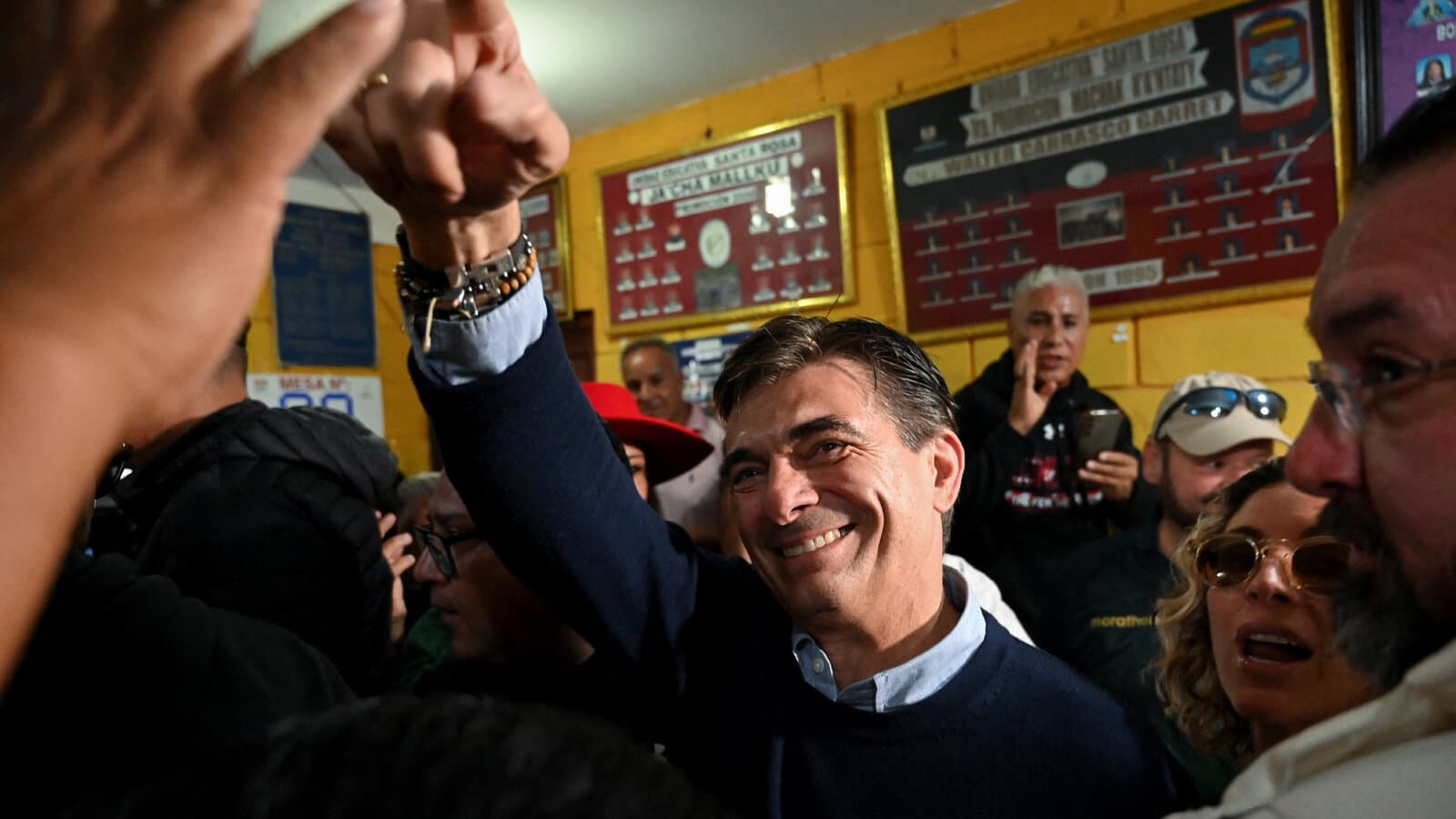We're loading the full news article for you. This includes the article content, images, author information, and related articles.
Senator Rodrigo Paz Pereira's victory marks a significant shift to the right for Bolivia after nearly 20 years of governance by the leftist Movimiento al Socialismo (MAS) party, ushering in a new political and economic direction for the Andean nation amidst a severe economic crisis.

Centre-right Senator Rodrigo Paz Pereira, 58, has been declared the President-elect of Bolivia, securing 54.6% of the vote in Sunday's presidential runoff. His victory signals a definitive end to nearly two decades of dominance by the leftist Movimiento al Socialismo (MAS) party, which had governed Bolivia since 2005.
The preliminary tally from the electoral court, with over 97% of ballots counted, showed Paz Pereira ahead of right-wing former president Jorge "Tuto" Quiroga, who garnered 45.4% of the vote. The electoral court has up to seven days to release the official, definitive results. Paz Pereira is expected to assume office on Friday, November 8, 2025, for a five-year term.
This election marks a historic turning point for Bolivia, as it is the first time since 2005 that no candidate from Evo Morales' MAS party was on the presidential runoff ballot. The MAS party, which brought Evo Morales to power as Bolivia's first Indigenous president in 2006, had experienced a significant decline in support, culminating in its worst-ever result in the first round of the 2025 elections. The party's candidate, former Interior Minister Eduardo del Castillo, secured only 3% of the vote in the first round.
The shift to the right comes amidst a deep economic crisis in Bolivia, characterized by fuel shortages, fiscal deficits, and a prolonged lack of foreign exchange. The country's statist economic model, which relied heavily on natural gas exports, has faced challenges as exports have dwindled. Voters, grappling with a shortage of US dollars and long queues for fuel, opted for a change in leadership to address these pressing economic issues.
Paz Pereira, a senator for the department of Tarija and son of former president Jaime Paz Zamora, campaigned on a platform of institutional reforms, gradual economic opening, and targeted subsidies. He has also expressed a desire for pragmatic international relations, including a cautious rapprochement with the United States, and deeper integration into regional alliances like the Andean Community (CAN) and Mercosur.
A significant challenge for the incoming president will be navigating a fragmented Congress. While Paz Pereira's Christian Democratic Party (PDC) secured the largest number of seats in both the Chamber of Deputies (49 seats) and the Senate (16 seats) in the August 17 general elections, it does not hold a majority. This will necessitate forming alliances to effectively pass legislation and implement reforms.
Paz Pereira's victory has been met with a forward-looking sentiment. In his address to supporters in La Paz, he emphasized building a new path for Bolivia, focusing on job creation, strong institutions, legal security, and respect for private property. His opponent, Jorge Quiroga, acknowledged the preliminary results and congratulated Paz, stressing the need for a mature attitude to address the country's challenges.
The shift in leadership could also impact Bolivia's approach to coca cultivation and drug policy. Under the previous MAS government, relations with the US on drug enforcement were often strained, with Evo Morales expelling the US Drug Enforcement Administration (DEA) in 2008. Both Paz Pereira and Quiroga have indicated a desire for stronger relations with the US, which could lead to a more aggressive stance on drug control.
While preliminary results indicate a clear victory for Paz Pereira, the Supreme Electoral Tribunal (TSE) has stated that these figures are not definitive and the official results will be released within seven days. The composition of the new Congress, where no single party holds a majority, presents a key area to watch as Paz Pereira forms his government and seeks to build consensus for his policy agenda.
Observers will be closely watching the formation of Paz Pereira's cabinet and his initial policy pronouncements, particularly concerning the economy and foreign relations. The new administration's approach to addressing the ongoing economic crisis, including fuel shortages and inflation, will be a critical indicator of its effectiveness. Furthermore, the dynamics within the new Congress and the ability of Paz Pereira to forge stable alliances will be crucial for political stability and governance in Bolivia.
Keep the conversation in one place—threads here stay linked to the story and in the forums.
Other hot threads
E-sports and Gaming Community in Kenya
Active 8 months ago
Popular Recreational Activities Across Counties
Active 8 months ago
The Role of Technology in Modern Agriculture (AgriTech)
Active 8 months ago
Investing in Youth Sports Development Programs
Active 8 months ago